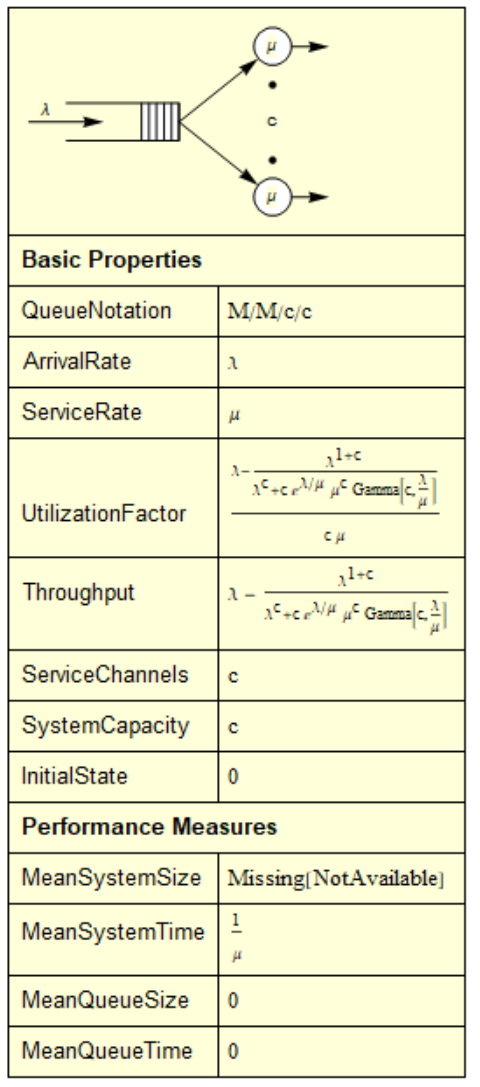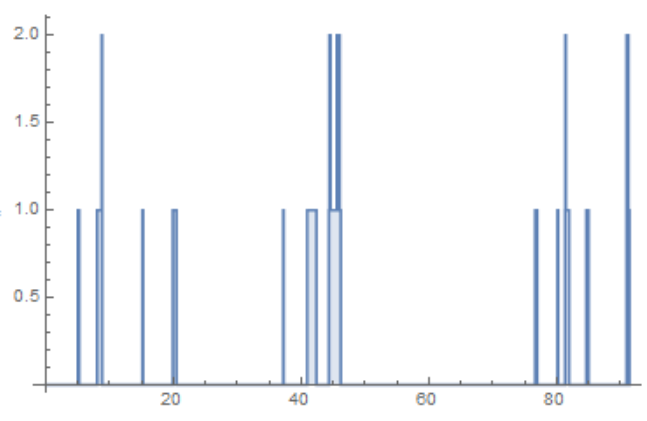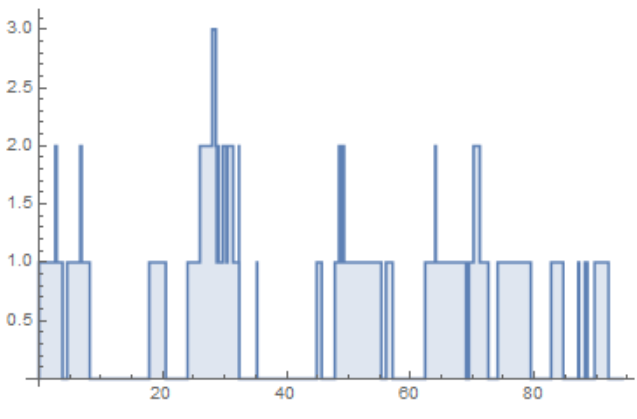I am considering the Earling-B or m/m/c/c process.
Let the request arrival rate follows Poisson Process with average rate, $\lambda$
Let the service time follows Exponential Distribution, i.e., $\mu$ is the mean of Exponential Distribution.
Let's say, I have a grid of $c \times T$. Here $c=5$, i.e., in the Queueing process, there are 5 servers and 5 requests can be served at most concurrently. Let, $T=100$ is the number of time-slots that I need to simulate. Therefore, each block in the x-axis represents a time-slot and each block in the y-axis is the amount of resource required to serve a request.
For example,
Let the number of requests at the first time-slot is 3. The first and the third requests need service time of 2 times slots, while the second request requires service time of only 1 time-slot.
As a result, in the grid,
The first row will have two grid-element (first and second column) filled
The second row will have one grid-element (first column) filled
The third row will have two grid-element (first and second column) filled
Now, let's say, at the second time-slot, the number of requests is 5. In this case, due to the nature of Earling-B or m/m/c/c Queueing Process, only 3 more requests can be served at this particular time-slot as we already have two requests being served (first and third request arrived at first time-slot). Other requests are blocked or lost.
How do I generate the number of resources being used by the system in different time-slots?
Lets assume, $\lambda=0.2$ per time-slot
$\mu=2$ time-slots




QueueingProcess. According to the documentation, you need a continuous one. Secondly, did you look at the page on Queuing Processes in the docs? $\endgroup$PoissonProcessfor the arrivals, rather than aPoissonDistribution? I think that's the confusion here. APoissonProcessshould work in aQueueingProcess. $\endgroup$